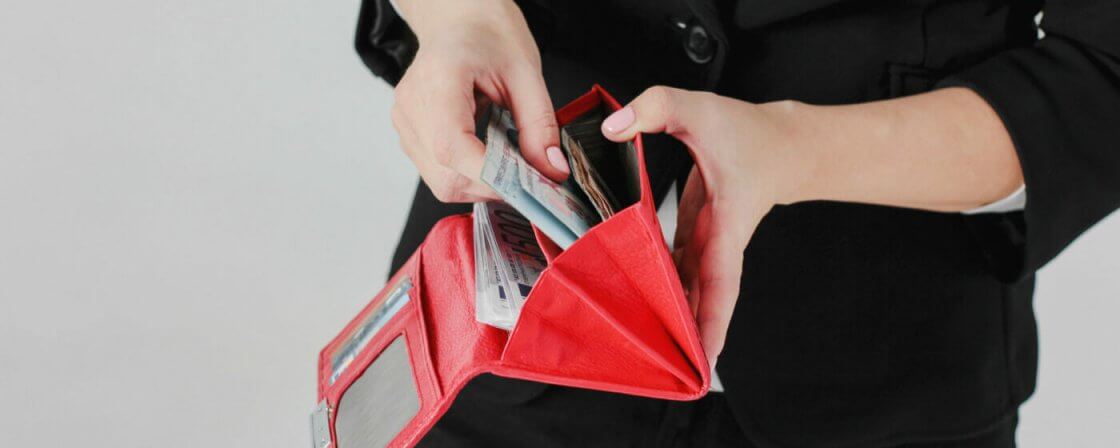The concept of unjust enrichment
The Civil Code regulates unjust enrichment in the context of “obligations for other legal reasons”. It is therefore an obligation between two parties which is not based on a contract. One party to the relationship has the right to demand certain performance from the other and the other party is obliged to provide it. Both should then provide the cooperation to fulfil the obligation.
“Nor is ‘other legal cause’ the damage suffered, which gives rise to an obligation to compensate for damage and not to the payment of unjust enrichment. Moreover, unjust enrichment always presupposes that one party has suffered to the detriment of the other, which is not the case for damages.
Tip for article
Tip: We have covered the general aspects of compensation and the procedure for dealing with it in a separate article.
Are you solving a similar problem?
Have you suffered damage and want fair compensation? We can help you get it
Whether someone has damaged your property, caused you personal injury or you have suffered financial loss because of someone else’s mistake, you have the right to compensation. We will represent you in dealing with the insurance company, your employer and the courts to make sure you get everything you are legally entitled to.
I want help with compensation
- When you order, you know what you will get and how much it will cost.
- We handle everything online or in person at one of our 6 offices.
- We handle 8 out of 10 requests within 2 working days.
- We have specialists for every field of law.
Imagine you’ve had lunch in a restaurant. The waiter was very prompt, the ambience was pleasant and you enjoyed your lunch very much. You want to add the obligatory ten percent to the price of lunch as a tip. However, you only have a legal reason to pay the amount written on the bill. Is there not unjust enrichment on the part of the restaurant?
The Civil Code also characterizes unjust enrichment as payment without “just cause.” So, although there is no legal reason, the payment of the tip can be considered a just cause and is not unjust enrichment.
However, a legal reason does appear in the definition of unjust enrichment, which outlines typical examples of when unjust enrichment may occur. This may be the acquisition of a material benefit:
- performance without legal justification – or so-called non-debt performance. However, such situations must be due to the mistake of the person who has been impoverished. For example, he or she performs in error for another person, or performs more than he or she should but does not realise it. This is the typical way in which unjust enrichment occurs.
- performance on the basis of a legal reason that has fallen away – unlike the previous case, here the legal reason (for example, a contract) existed, but the contract was cancelled, for example, and the performance was still made.
- unlawful use of someone else’s value – these are examples where I have obtained a thing illegally (through criminal activity) which will bring me further benefit. For example, I use a car that I have stolen.
- by performing for someone what he or she was rightfully obliged to perform himself or herself – an example is a situation where Mr. Ulč has to pay a certain debt, but Mr. Diviš pays it for him or her, although he or she has no such obligation (for example, he or she is not a guarantor). In such a case, although there is no direct enrichment of Mr Ulč by way of an increase in his assets, there is a reduction in his assets that would not have been caused by the performance under the law. We therefore speak of enrichment here too.
The conditions which must be met for there to be unjust enrichment:
- the benefit of the wrongful acquirer and his enrichment,
- harm to the other party,
- a causal link between the acquisition of the enrichment by one party and the detriment of the other party,
- the enrichment may be considered unjustifiable.
What is the procedure in the case of unjust enrichment?
The basic premise of such a situation is that the person who has enriched himself at the expense of the person who has been impoverished without just cause must repay him for what he has enriched himself.
In the event of delay in repaying the amount obtained without legal justification, the debtor may also be liable to pay interest on the unjust enrichment.
But what do we do on the other hand if we cannot return the object of unjust enrichment? For example, because we no longer have it? In such a case, we will pay the depleted party a monetary compensation for the item, equal to the normal price.
If the recipient is an honest recipient, who at the time believed that he or she was not enriched, but the item rightfully belongs to him or her, and he or she passes on the item (donates it or sells it), he or she can reimburse the impoverished person what he or she earned from the sale of the item. If he has kept the item but has in the meantime repaired or improved it in some way, he is, on the other hand, entitled to claim compensation for the necessary costs incurred.
Example: in addition to his purchase, Mr Vrba received a card from the e-shop announcing that he was the lucky winner and had won a hair curling iron worth CZK 900. However, Mr Vrba has neither long hair nor a wife to please with the gift, so he sells the curling iron for 500 crowns. Later, when the shop calls him and tells him that they made a mistake with the prize and someone else won, Mr Vrba can either return the original value of the curling iron, i.e. CZK 900, or what he got for selling it, i.e. CZK 500. In such a case, however, it would be most worthwhile for him to have a wife, because if he gave her the curling iron, he would not have to return anything.
Action for unjust enrichment
If the enriched person does not want to return the unjustified enrichment voluntarily, he should take legal action for the recovery of the unjustified enrichment and bring it to court.
When is there no obligation to repay the enrichment?
The law also refers to situations where, for example, enrichment has occurred but there is a circumstance which does not give rise to an obligation to repay the enrichment.
Performance of the debt
The first such situation is where there has been a performance of a debt. For example, if the debtor has paid the creditor early and the creditor has accepted the payment, the debtor cannot recover it on the basis that they will not pay until later as they agreed. The same principle applies to the performance of a time-barred debt, which is often confused with the limitation of unjust enrichment. In the case of unjust enrichment, however, a different time limit is to be observed – the limitation period starts to run from the moment the injured party becomes aware of the enrichment.
Deliberate performance of a debt
If a situation has arisen where one person has given a performance to another person, knowing that he is under no obligation or duty to do so, this is known in law as knowing performance of a debt which does not have to be repaid. The emphasis must be on the fact that the performer is indeed fully aware of the situation. In practice, such a situation will be very similar to a gift.
Unjust enrichment from the use of immovable property
This also applies, for example, in situations where someone occupies real estate without legal justification – he is obliged to pay the owner unjust enrichment from the use of the real estate. In such a case, the enrichment, i.e. its financial expression, would be the amount, in this case the rent, normally spent in a given place and time for the use of a similar leased property and which the tenant would normally be obliged to pay under the lease.
An interesting and closely watched situation in this context was addressed by the Supreme Court, which reviewed one of the cases of squatting (i.e. unauthorised use of an abandoned property). Rather surprisingly, in its decision it concluded that the immovable property could not have been rented at all during the relevant period, the right of use was therefore of zero value, and therefore it could not even be concluded that the subject who used it was enriched. In his view, there was therefore no unjust enrichment in the present case.
Limitation of unjustified enrichment
The right to the recovery of unjust enrichment may be time-barred if it is not exercised in time. The general limitation period for unjustified enrichment is three years from the date on which the injured party became aware of the enrichment and who was enriched. However, the latest you can exercise your right is ten years from the time when the enrichment actually occurred.
The statute of limitations on unjust enrichment means that even if your claim formally exists, the court will not recognise it if the other party invokes the statute of limitations. It is therefore important to act early and not wait for the situation to resolve itself.
Summary
Unjust enrichment under the Civil Code arises when someone is unjustly enriched at the expense of another without a just legal cause. This may be a performance made by mistake (so-called non-debt performance), performance for a legal reason that later fell away, unlawful use of someone else’s property, or a situation where someone performs a debt on behalf of another that was not his or her obligation. In order to claim the recovery of unjust enrichment, there must be a benefit to the wrongful acquirer, a detriment to the other party, a causal link between them and the enrichment must be unjustifiable. If the enriched party does not want to return the benefit voluntarily, an action may be brought for its recovery. However, there is not always an obligation to repay – for example, in the case of knowing performance of a debt in default or performance of a time-barred debt if the debtor was not aware of the time-bar. If the object of enrichment cannot be returned, its value in money is refunded. In certain cases, the honest recipient is entitled to compensation for the costs he has invested in the object.
Frequently Asked Questions
What is the statute of limitations on unjust enrichment?
Limitation of unjust enrichment means that if the person who has been deprived of the benefit does not assert his or her claim within the statutory period, the court may not grant him or her the right to recover the benefit. Usually, the period is three years and starts when the injured party becomes aware of the enrichment and who has been enriched. After a maximum of ten years from the enrichment itself, the claim ceases altogether.
How long is the limitation period for unjust enrichment?
The general limitation period for unjustified enrichment is three years from the time when the impoverished person became aware of the enrichment. However, in some cases it may be longer – for example, in the case of intentional enrichment, where the time limit may be up to ten years. It is knowing the statute of limitations for unjust enrichment that is key to ensuring that your claim is not dismissed simply because the time limit was missed.
Can unjust enrichment be recovered after the limitation period has expired?
After the expiry of the statute of limitations, the claim for unjust enrichment is not formally extinguished, but the court will not recognise it if the other party invokes the statute of limitations. In practice, this means that without legal aid, it is difficult to get your money back. That is why it is important to act quickly and consult a lawyer.
How do I find out if the unjust enrichment is already time-barred?
It depends on the specific circumstances – for example, when you became aware of the enrichment or when it actually happened. If you are unsure, a legal analysis of your case can help. A lawyer can calculate exactly whether the unjust enrichment has already been statute-barred and advise you on how to proceed.




